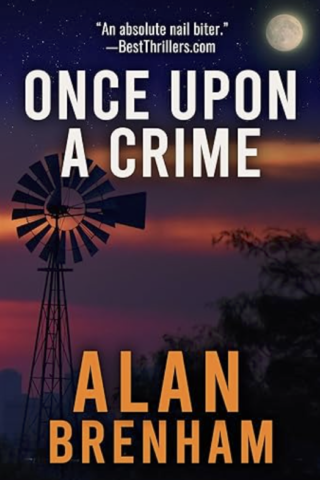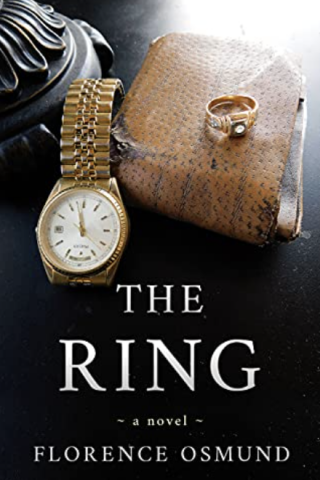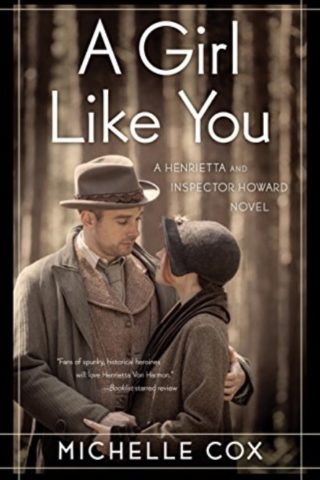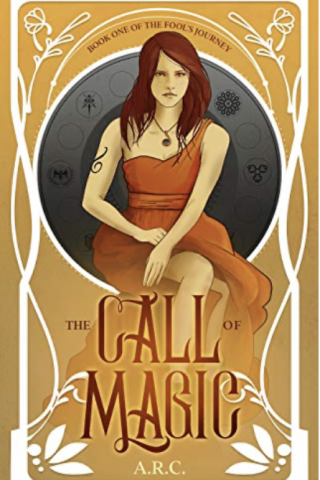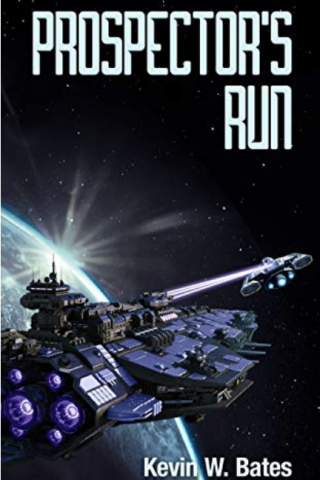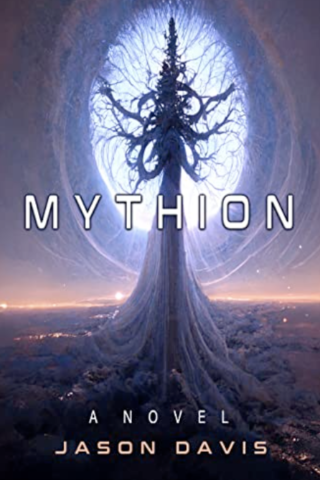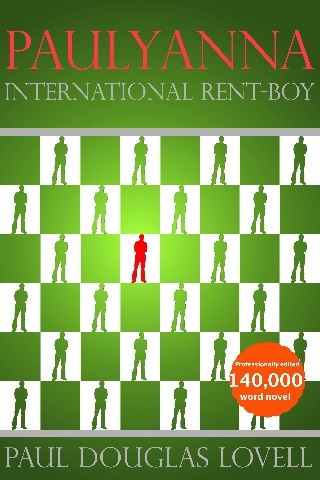
Description:
Paulyanna: International Rent-boy is an honest and frank portrayal of a working-class male prostitute’s life.
Many factors contribute in delivering the main character onto the streets. Some very typical, such as early abandonment, poverty, lack of education and sexual abuse. But Paul does not dwell too much on the past and refuses to allow these events to mar his ambition.
At eighteen a lost train ticket leaves him stranded in the city after a job interview. He uses his questionable wits to make a quick decision that steers him down a rather dodgy path.
Without added glamour or grit, Paul shares the raw accounts of his life as a rent-boy in the 90s, from London to Los Angeles. It may not have been pretty, and there was risk and danger as well as fun and thrills, but Paul had the audacity to succeed in his quest to obtain happiness, security and wealth.
This is not an erotic tale. It is an ordinary account of day-to-day life as viewed from a unique perspective. A peek into what really goes on behind the glassy-eyed smile of a male street worker. Read about his life in this optimistic and fascinating roadbook adventure.
Book Rated: R
e x c e r p t
[Web-Dorado_Zoom]
Chapter 1…Introducing Paul
I grew up in the seventies and eighties, an impostor in my own life. Outwardly I appeared to be a normal working-class ruffian, scratching and biting along with the best of them. Inwardly I yearned for wealth and to feel a softer side of life.
Raised by my Dad on state benefits, it was a fairly hard upbringing where going without was an expected fact. School trips, pocket money day, Easter and birthdays always passed by with great disappointment. The words “Because you haven’t got a mom,” always followed my moans of “Oh, why?” I was the youngest of five underprivileged children so it didn’t take long to discover that all requests were met with this response and, more importantly, that Dad’s word was final.
Living below the poverty line meant our house lacked that homey feeling and was always cold. There was a bullet-sized hole in the dining room window. The glass pane, too big and expensive to replace, had been crudely held together by adhesive tape. Over time this had yellowed and no longer really stuck, so allowed the wind to whistle merry tunes through its opening. Closing the front door would make the whole thing rattle, threatening to shatter, year in, year out. It made me anxious because I knew that when it did, we would probably board it up, just like the back door and the window in the hallway. Which, as far as I knew, had always been broken.
In the coldest winters, ice would gather on the inside of the windowpanes and cold water pipes would often rupture. Water would seep through a hole in the ceiling, the result of a previous leak, and once again drench the kitchen. It happened so often that the slightest mention of freezing temperatures had us rushing upstairs to scrub out the bath-tub so it could be filled up with fresh water. Otherwise when the supply got cut off due to a burst, we’d either have to collect some “white” snow from the garden or visit a neighbour with an empty bucket.
We placed glass screw-top bottles filled with boiling water in old socks and took them to bed with us. For extra blankets we used itchy overcoats and thick curtains with metal attachments that scratched at our chins. Sheets of newspapers were also inserted between the covers. The whole thing weighed so much that turning over was nigh on impossible. We were not exactly the snuggest of bugs. It was sheer claustrophobic terror for me to awake with my head at the bottom of the bed. As if being held under water, my blind-panic kicking and muffled bawling would alert my brother to pull me free.
On some occasions after a long, snowy trudge from school, we would be greeted home to the piping-hot aroma of tinned soup simmering on the stove. As feelings of cosy homeliness were rare in a house with no carpet, I always cherished those warm welcomes and perceived them as confirmation of my dad’s love.
The dark winter evenings brought with it Christmas, a magical time of year full of anticipation. I knew for sure presents and sweets were heading my way. Despite taking the best part of a year to pay for it, my dad usually purchased a large food hamper out of a shopping catalogue. Sometimes we went knocking on doors in the well-to-do areas carol singing to earn some money. We would use it to buy each other gifts. However, I wasn’t all that keen on Boxing Day. Even though I was often disappointed by Christmas due to my lofty expectations, the thought of waiting a whole year for it to come back around always seemed like a lifetime.
We may not have had many toys but what we did have was freedom and a lot of imagination. We played outside a great deal, but if I couldn’t keep up I wasn’t allowed to tag along. My older brothers would run off at full speed and I would attempt to stay on their heels. Then I’d stamp my feet in a tantrum as I shouted “Fuckin’ bastards!” at their vanishing silhouettes. I’d call on friends, most of whom weren’t supposed to play with our problem family. There had been a petition circulated in the cul-de-sac and the adjoining roads near our home to have us evicted from the street.
I was a relatively well-behaved child “around the house”, doing all my chores and being totally respectful to my dad. And also to Dad’s butter, his one extravagance that nobody was allowed to touch, and not forgetting Dad’s chair, which was frantically fought over whenever it sat vacant, and Dad’s slippers which, to be fair, were relatively safe and usually holey.
In the six-week summer holidays, a gang of us, called The Scrumpers Anonymous, went out stealing apples, and sometimes on mini adventures down to the canal. We’d make a fire to cook potatoes, which always burnt and then got thrown into the water, and then we would try to hitch a ride home. As we grew older we got up to more mischief by dabbling in petty crime. Along the way, I guess you could say I got broken.
From around the age of seven I had been concealing some really fucked up emotions, with guilt and shame the strongest amongst them. Abuse can often be mistaken for affection to a neglected child living an impassive existence. It is such a callous tag, but I was what some may consider “damaged goods” and I bore many of the hallmarks. At school I was the class clown and very rebellious. My internal emotions, often hidden behind witty remarks, were closed off. I felt frustrated being so poor all the time and was consumed with envy towards “the haves”, my peers.
Fashions and trends, no matter how inexpensive, always left me wanting and feeling more inadequate. Having to play outdoor sports in black plimsolls really bothered me because I didn’t own a pair of football boots with screw-in studs like my classmates. A fad of purposely dragging their feet whilst crossing the hard playground to make a horrendous scraping racket, just to annoy the coach, seemed to piss me off more. My pumps made no sound at all. I refused to take part in sports, and was the only pupil standing on the side-lines. I shivered until sent in early.
I did have new school shoes once a year but they never lasted and I mainly remember wearing tattered ones. I used a rubber band to prevent them chomping like a hungry mouth and to stop gravel and other sharp particles from being devoured. The elastic would constantly snap, due to the abrasive ground underfoot, and then the shoe would flap open again to embarrass me. Occasionally the sole would bend back on itself to make me stumble or scratch my holey-socked foot on the concrete pavement beneath.
It didn’t go unnoticed. A boy at school named Andrew gave me his old Nike trainers, not once but several times. Although second-hand, they always added an extra spring to my step. I was never too proud to be grateful.
I wasn’t a violent child and never bullied other kids, but I was known to lash out at teachers. My brattish behaviour led me to being banned from many classes and ultimately to prematurely leaving school at fifteen without any qualifications. Secretly, I wanted to conform and to be like everyone else, but rejection and years of exclusion drove me away from the mainstream. I began to doubt it could ever happen. Having no control over my developing sexuality and hearing that queers were an unacceptable abomination didn’t help.
As you can imagine, for such a skinny fellow I had developed some pretty broad shoulders in my formative years. I needed to with so many burdens and chips heaped upon them. Class and lack of education. Self-pity and envy. Concerns regarding race and belonging due to the unknown blood that flowed in my veins. Acceptance and rejection, sexuality and religion. So many doubts and unresolved issues, it was no wonder I sank instead of swam. In uncertain times, obstinate optimism and my flimsy faith was all that kept me from floundering.
I believed that God saw everything, and that he watched even in my wild times. It was never clearly defined, that line between good and evil, sinner or saint. In my heart and my head, I felt good and saintly. I tried to respect people. Show compassion and understanding to all. “Do unto others,” like one of my Dad’s favourite doctrines. Stealing was selfish and telling lies cowardly, although as a juvenile I did my fair share of both. I was, however, no longer a self-destructive child. I decided I wouldn’t steal unless I was starving and I would only lie without compunction to the police.
My pick-n-mix religious beliefs were constantly changing and morphing. I searched and settled on a selection of different ideologies that made me feel loved, accepted and, dare I say it, still blessed. I had always prayed, even before I was old enough to start school. Nothing was imposed; I had no zealot for a father. I suppose the initial instruction to pray before bed must have come from somewhere but I can’t remember where. It was just something that I did every night before laying down my head.
Perhaps it was I who was the zealot. I can clearly remember questioning my older brother David, much to his annoyance.
“’Ave yow said ya prayers?”
Even then I was getting ready to shout, “Daaad, David ay said his prayers.” For me it was of paramount importance. I wanted all my whole family to say their prayers and go to heaven, not just me.
In one of the first religious lessons at school, I remember the main emphasis was that God the Almighty was everyone’s Father. I thought, “Great, I’ve got two Dads.” I was hooked from then on. Having no mother didn’t seem to be such a great loss with the announcement that I had a powerful God as a second dad. Luckily I overlooked one small fact: the rest of my classmates now had three parents.
God wasn’t make-believe like the tooth fairy or Father Christmas. Even at a young age, I was aware of the distinction and I never bothered to write to Santa. Wholeheartedly God belonged to me and we were really pally, even more than those dads that played footy with their kids over the green. Whenever I needed a chat, I didn’t even have to open my mouth. I just had to think the words and he would hear me. He caught my cries and dabbed my tears. Witnessed all the bad things and kept score. It sustained my hope and also comforted me knowing that he knew.
I’d been baptised so attended a Catholic school. I had my first Holy Communion and later got confirmed. I said my prayers every single night. God and I developed a special unique bond. We had an understanding. I spoke informally when I prayed. I imagined God preferred it that way and had given me permission to do so.
My early prayers were spent goading the Lord to appear at the end of my bed. Persuasive arguments and threats to stop praying resulted in nothing. Complete 100% faith was the only thing I knew of that would allow me such a vision. I tried that so many times. Every time I got to about 95%, I would hear the slight murmur of niggling doubt scratching away in the back of my mind. I tried hard to dispel it but all was lost as it was already present.
As I grew older I refrained from questioning, criticising and moaning. I used my prayers mainly for family blessings and gratitude. I reckoned God probably got a bit tired of everyone bitching and blaming him for the woes of the world. I also thought he would be more inclined to listen to my prayers if they weren’t so whiney.
I had to really strive to keep alive my religious dream of the existence of an omnipotent loving Father, aware of everything. I managed to resolve the debate of creation versus evolution relatively easy as a young child. I was taught that when forty days and forty nights was given as a period of time, it wasn’t to be taken literally. It was just meant to mean a very long time. I applied that logic. So, thirteen or so billion years ago, God said, “Let there be light,” and created the Big Bang. He gave the order from the same void where the first minute atom existed and he released it from its confines as though flicking a small pea. From nothingness into nothingness, an explosion that expanded into more nothingness. Nobody has yet explained what the universe is actually expanding into or the dimensions of this infinity. Yet we are led to believe it will reach a finite level and collapse in on itself. On the second day, a good few billion years later, God returned to create the oceans. After another command, humans evolved from the building blocks already provided. I always found this shared hypothesis more than adequate enough for me.
As to the question as to why I was allowed to suffer, or anyone for that matter, without divine intervention, I think people overestimate their importance in God’s eyes. If I created an ant farm in a glass-fronted box, I would supply soil, leaves, rocks, food and water. I would introduce some ants and then sit back, relax and watch them get on with it. I definitely wouldn’t be watching and waiting on them, day in and day out. If they chirped and scratched out tunes of devotion, I might listen, but then again, I might not. I wouldn’t rush in to separate two squabbling ants, or carry one with a broken limb nearer to its destination. Saying that, if I watched it struggle long enough, my heartstrings might eventually persuade me to give it a helping hand. Do we really think God is waiting around simply to perform miracles to serve a colony of insignificant insects? Nobody even knows how many other ant farms there are out there. I mean, why stop at creating just one?
On numerous occasions I had sought refuge from my harsh working-class environment and gained much comfort from simply walking around my local church, St Michael’s. Peering through the stained glass windows into the Lord’s temple in the hope that God could see me. When unlocked, I entered the vestibule to anoint my forehead with holy water and to gaze at the holy treasures, mesmerised by all the sparkling valuables secured within the glass display cabinets. There were rosary beads, Saint Christopher medallions and other saintly regalia, all for sale at extortionate prices. Tentatively I would continue beyond and into the nave. The distinctive aroma of the wooden pews infused with remnants of the burnt incense never seemed to change. Although I knew of none, I would burn a tea-light candle for the poor departed souls. I reckoned God didn’t mind that I never paid because he knew I didn’t get pocket money.
I always made sure to respect the sacred convention of genuflection before the altar as it would have been rude not to. It was my belief that because of the reverent location of their source, my silent prayers were amplified. Sometimes on a Saturday morning, mainly because I was bored, I would go to confession. As it was years prior to my adolescent hormonal awakening, I would often have to make up sins so I had something to confess. Being mean to my siblings was a particular favourite.
I needed something sacred in my life and wanted to maintain my connection with God. I probably would have chosen to be an altar boy. Unfortunately my wayward brothers had already scuppered my chances by pea-shooting the congregation from up in the balcony. It was the same story regarding me attending the karate club, the Cub Scouts and later obtaining a newspaper delivery round.
My dad never accompanied us to church. Subsequently a bunch of unruly kids would pop by to collect a pamphlet and have a mess around before visiting the nearby park. So, even before I started any religious education, my family had almost completely stopped going to Sunday mass, which was probably a relief to some. As we were never allowed to join the three oldest up in the balcony, for fear we would tell Dad, my sister and I were much better behaved. We would sit nicely together throughout the whole service. I was too young to understand anything but memorised most of the responses. Ushers would walk down the aisles carrying baskets of money. They were passed along the rows for donations. Coins, notes and envelopes were lovingly presented. I waited in anticipation, watched as it slowly crept towards us. My eyes must have been a little greedy looking because the charitable vessel always sailed straight past us at around eighty-seven knots. Too swift for an urchin like me to get a look in.
Although Carole, who was nearly seven, was receiving instruction in the sacrament of the Holy Eucharist, we were not yet permitted to take communion. We used to practice at home with morsels of bread and sometimes sweets. The one in possession of the goodies got to play the role of the priest.
Towards the end of service we were directed to turn and face our “brothers”, or sister in my case. Then we got to shake hands with our immediate neighbours, I liked this part very much. These were my earliest memories of church.
Later, when it was my turn to be prepared for First Communion, and as part of my teachings, I had my first official introduction to The House of God. I remember the walk from school and how eager I was. They made the trip sound like a pilgrimage. Some highly prized privilege. A stern warning about naughty behaviour was issued to me. Little did they know that I believed every blessed word and was passionate to step through those holy doors once more. I wasn’t disappointed; the silent ambience felt so peaceful and reverent. It was a beautiful home. The brilliance of its coloured stained glass panels that reached ever upwards and splashed the floor with delicate hues. The magnificence of the circular vaulted ceiling that echoed the sounds of us children jostling for seats.
I wasn’t at all keen to gaze upon the terrifying crucifix suspended by metal cables beneath its dome roof. It was a bit much to stomach witnessing poor Jesus and his thorny crown, nailed and hung, looking so forlorn and defeated. Sadness always enveloped me upon hearing the story of his crucifixion. I found it hard to fathom why God would allow cruel people to be so barbaric to his own son.
Complete faith was the simple answer to all my questions. I was ever so distraught when I later discovered my only source of hope and comfort was to be snatched away. Existing with exclusion thus far had been tolerable and of little consequence to me as I had always banked that the Lord God Almighty was watching my back. It seemed incomprehensible, hearing this new threat – that numerous Bible passages and church leaders had condemned me with to an eternal life in damnation. All because my penis seemed to have a mind of its own. Was all that I heard really true? Was I to be left with only a jaded glimpse of a prohibited paradise? Was I now supposed to go it completely alone, damned for all time? My fate, written by man and claimed to be the direct word of my mate God, my primary guardian and only true possession, had been sealed. Without question and undisputed it appeared a running feature in most belief structures. Homosexuality was an affront to the Lord and should be eradicated, preferably by over-zealous fanatics and their young children waving hate-filled placards.
My dad’s anti-establishmentarian sentiment made up a large part of his personality. Hypocrisy was perhaps his biggest irritation. He could quite happily rant at the television news without an audience. Whenever he started, we’d often slip out of the room just in case he asked our opinion. Suffer the fool that tried to engage him in conversation with the wrong end of the stick or a counter-view. Although Dad stopped short of blasphemy, the hypocrisy within organised faiths would always create fervent disparaging remarks.
He had many horror stories pertaining to his abusive upbringing in an orphanage run by Catholic nuns. One particular incident he retold was the day a visiting priest noticed he was wincing. He suffered from housemaid’s-knee, a painful condition typical of those that spent long periods of time scrubbing floors. The nuns accused him of telling tales on them and then beat him with a stick. My dad said Christmas was the only day the nuns showed they were actually Christians. Every child received the gift of a book wrapped in newspaper. The simple pleasure gained by having their name called out and unwrapping something made their day special. It didn’t matter that they never got the chance to read them. That very evening all the orphans had to hand them back. The books were not seen again until the following Christmas.
The unscrupulous conduct of teachers at school showed him that even in the 70s and 80s there were still inconsistencies in the behaviour of so-called Christians. It was a known fact amongst St Michael’s church-goers and my school teachers that I came from a motherless family that lived off social security hand-outs. However, every Monday morning, throughout my entire schooling, I was required to stand up and announce in front of the whole class that I received free school dinners. I dealt with it well and, as the years went by, more and more children joined me in my Monday morning mantra. Ironically it was always the toughest kids too, so stigma turned to a badge of honour. We even had a gang called The Social Scroungers, even though we were only around eight years old.
When I was in the infants’ class, at six years old, my classmates already knew that I didn’t go on any school trips, even if future lesson plans or class projects were based around them. Our class was off for a day trip to Ironbridge, Staffordshire. I fully expected to miss out since payment was required. I was overjoyed when a girl named Lucy paid for me to go. However, the teacher refused her generous offer and gave the money back to her parents. Something about not receiving charity was her reasoning. I was disappointed but soon forgot about it. Later Lucy’s mum came round to our house, explained all and gave my dad the money. Dad was livid as he felt his children were being victimised. He was ever so upset. It looked like he was about to cry. It was true that we were a naughty bunch of kids, but only out of the house. Dad was extremely strict at home. However, due to the behaviour of my older siblings, even before I started school my reputation as a troublemaker proceeded me. I didn’t disappoint, so who knows, maybe the teacher just wanted a stress-free trip.
I formed a lot of my earlier opinions by hearing Dad’s ardent views. People were the biggest problem with organised faiths, not God. So many conflicts were fought in the name of religion. It was laughable that both clans would hold aloft the same piece of text, both would claim divine providence would lead them to victory. The Ten Commandments, once fundamental foundation blocks and core to most religious instruction, no longer appeared valid. Thou shalt not kill, at first loosely interpreted, now somewhat conveniently forgotten.
However, there was no mistaking the passages within the Bible that condemned my sexuality as an abomination. In sermons the persecution of homosexuals was fervently encouraged by God-fearing preachers. The hysterical levels of hatred, fully condoned. If it continues to escalate they will probably end up bestowing sainthoods on the perpetrators of gay slayings. Coachloads of pious devotees, eager to cast the first stone on behalf of all that is holy, happily jeer and chant in the knowledge that the Gay Pride marchers, although proud today, will burn tomorrow.
When I first started to realise I might be gay, I knew from these attitudes of others that I didn’t want to be. Initially I tried to concentrate intently on images of semi-nude Page Three girls that my brothers had plastered about the bedroom walls, hoping for any kind of reaction from my groin area. It didn’t happen but I could recognise female beauty. I prayed to God, night after night. I cried and pleaded for him to make me straight by morning. The Almighty had the power to change me. He chose not to. My simple conclusion was he couldn’t be that bothered.
Although I still believed that Jesus had existed I was forced to question the Bible. I saw it as nothing more than a best-seller, a tool or life manual with many co-authors. I dismissed it as a book of rules created by man to suppress and keep control of the masses. The initial interpretation of Jesus’ life on earth, his message and teachings, stood fast. Love God, your neighbour and yourself with all your heart: nothing more, nothing less. Jesus had loved all people with no exceptions. He went out of his way to include the excluded outcasts, the downtrodden and, most importantly of all, sinners such as the prostitute Mary Magdalene.
This suited what I really needed to believe, now more than ever. I decided I worshipped God but not the written word of man. Not text that had been amended and edited over many lifetimes. There were way too many contradictions and blind leaps of faith involved in believing. The former tax-collector and intense persecutor of early Christians, who turned his faith around on the road to Damascus, later became responsible for the persecution of gays in his scriptures. If I was to preserve any elements of my own spiritual ideology, I had to interpret things my way. I wouldn’t accept I was reviled by an angry God, a stranger whom I didn’t know. Or to imagine I had spent years, unknowingly, conversing with a cruel dictatorial tyrant. The only clear thing I knew was that nobody had the answers to my questions.
I continued to perceive a presence when I prayed or, should I say, I didn’t feel a void. There was no way I was about to relinquish what I had on the say so of a bunch of judgemental hypocrites. I decided to go about my life and continue attempting to be a good boy. I convinced myself it was a misconception that God hated fags.
I didn’t have a terribly sad childhood. I survived by deluding myself that I couldn’t properly remember the bad parts therefore, perhaps, they didn’t really happen. I filled my mind with wild romantic imaginings, viewed life through rose tinted spectacles and kept telling myself none of it mattered because one day I would be rich. By the time I was old enough to step out into the world these silly notions and my rebellious, cheeky bad-boy attitude were all that I owned. So with nothing to lose, not even pride, I headed for London to where the streets were supposedly NOT paved with gold in the hope of finding someone to spoil me and aid my ambition.



